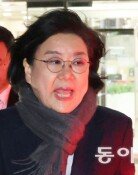Chinese oil and South Korean electricity
Chinese oil and South Korean electricity
Posted April. 27, 2013 06:18,
Although North Korean leader Kim Jong Un took power as a third-generation hereditary successor, he will probably feel a sense of responsibility as a ruler of a country. If a leader is to receive proper respect, he or she should show ability in foreign relations as well as in domestic politics. If Kim fails to adapt properly to the rapidly changing environment in Northeast Asia, which has been triggered by leadership changes in South Korea, China and Japan, his leadership would inevitably collapse. It is a matter of urgent interest for Kim Jong Un how the second-term Obama administration will treat the North.
Seeing the almost simultaneous leadership changes in major neighboring countries, the North Korean leader probably must have agonized over whether to wait for changes to come or move proactively. Obviously, his conclusion was to act preemptively to change the framework. The launch of a long-range rocket and the third nuclear test was Kims public announcement to the leaders of Seoul, Washington and Beijing that Pyongyang wanted them to recognize the Norths possession of intercontinental ballistic missile and nuclear weapons as a done deal and think twice about the North.
North Koreas suspension of the inter-Korean industrial complex in Kaesong should be interpreted as Pyongyangs strategy to take the upper hand in the re-establishment of the inter-Korean relations. The young North Korean leader suspended the Kaesong Industrial Complex even though it was started by his late predecessor and father Kim Jong Il, indicating his strong will to lead a new order in the region.
There are signs that neighboring countries might return to the past pattern of the Norths provocation leading to dialogue and compensations despite hard-line views urging them not to back down this time. Seoul and Washington have proposed dialogue and China has begun shuttle diplomacy. The United Nations Security Councils resolution adopted last month on putting sanctions on the North is being forgotten amid continuous threats of war from North Korea. If the North hang on just a little bit longer, it could make a misled judgment that it would win international recognition as a powerful country armed with nuclear and missile arsenals.
If the three neighbors of North Korea do not intend to let the North to do so, they should work to produce different results this time. There is one way to do so. They should not act the way they did in the past.
The Kaesong Industrial Complex has a fatal weakness. No matter how the inter-Korean relations are, Kaesong is in North Korean territory. Still, the Lee Myung-bak administration expanded the complex, excluding it from Seouls sanctions on Pyongyang. The number of North Korean workers at the complex increased from 42,000 in March 2010, when the North attacked a South Korean naval ship, to 53,000 in January this year. The monthly production of the complex rose from 30 million U.S. dollars to 3.6 million dollars over the same period. North Korea might have been glad to know a weakness of the South Korean government, which expanded the complex despite its call for sanctions on the North.
Expecting the Park Geun-hye administration to be the same, the North banned South Korean workers from entering the complex and stopped North Korean workers from working there. It is necessary for Seoul to realize that it made a miscalculation. The Kaesong Industrial Complex runs on electricity supplied by the South. The power substation at the industrial complex was built by the Korea Electric Power Corporation of the South. If Seoul cuts power supply, it cannot operate no matter how desperately the North tries to keep it afloat.
Every time the North makes provocations, the South urged China to stop supplying crude oil to the North. Seoul still believes that the implementation of the U.N. sanctions on the North depends on whether China participates. Nevertheless, China exported 106,000 tons of oil to the North last month, an increase of 8.2 percent from the previous month. It is not reasonable for South Korea, which cannot give up the complex, to urge China to impose strong sanctions on the North. Whenever we call for strong sanctions on the North to make it give up nuclear weapons, the United States, the European Union and Japan ask us what we would do with Kaesong, said Chun Yung-woo, former senior presidential secretary for foreign affairs. We have to take off our own shackles to make China move. And when China moves, Kim Jong Un can wake up and face the cold reality.




![“한동훈, 정치생명 걸고 무소속 출마해 평가받는 것 고려할만”[정치를 부탁해]](https://dimg.donga.com/c/138/175/90/1/wps/NEWS/IMAGE/2026/01/19/133186982.1.jpg)


